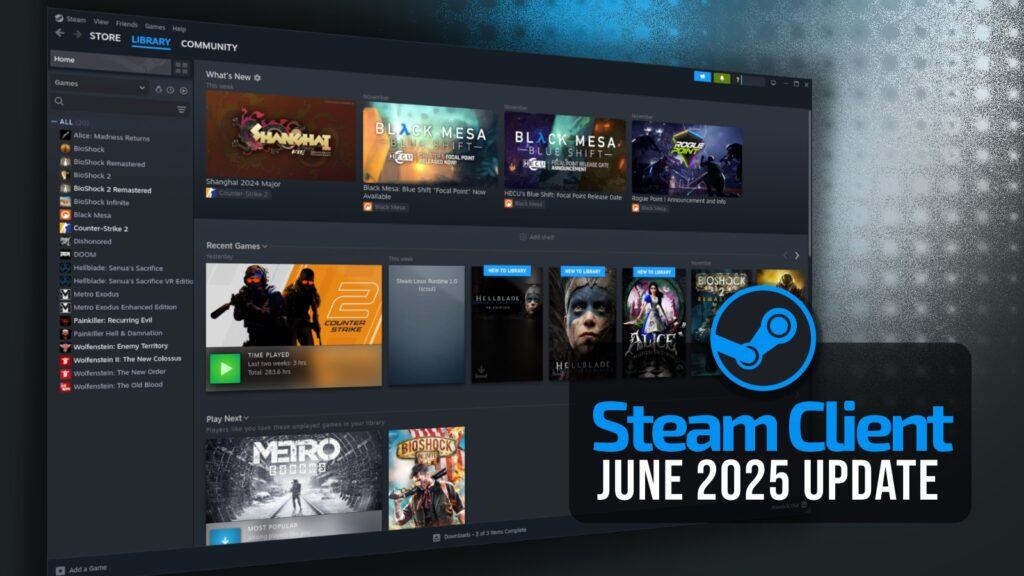Valve has just rolled out a fresh update for the Steam client, which will be automatically downloaded for users, bringing a mix of accessibility improvements, performance monitoring tools, and a host of bug fixes across multiple platforms.
One of the most notable additions is the new accessibility settings page in Big Picture Mode, which introduces options like UI scaling, high contrast mode, and reduced motion. Valve has also addressed unlabeled or incorrectly labeled UI elements, improving navigation for screen reader users.
Gamers who love tweaking their setups will appreciate the new In-Game Overlay Performance Monitor, which provides detailed real-time data on frame rates, CPU, and GPU performance.
While some metrics are currently Windows-exclusive, the overlay offers customizable display options in “Settings” > “In Game.” This feature builds on Steam’s existing FPS counter, giving power users more granular control over performance tracking.
The update also resolves several overlay-related quirks, including:
- Fixed periodic lag in Vulkan-based games when the overlay was disabled.
- Corrected timer alerts that persisted after exiting a game.
- Improved game notes synchronization between sessions.
- Restored proper window dimensions for recordings and screenshots.
Moreover, the latest update reduces client startup times for users with extensive non-Steam game libraries, addressing a long-standing pain point. The “Library” section also sees fixes, including:
- Proper display of cloud-uploaded screenshots in-game details.
- Restored missing thumbnails for game recordings.
- Corrected progress percentages for updating games.
Linux gamers receive significant attention as Proton is now enabled by default for games lacking a native Linux build, streamlining gameplay right out of the box. Plus, Steam Input improvements are extensive for gamers utilizing specialized controllers, adding paddle and button binding support for controllers from brands like 8BitDo and FlyDigi.
Finally, Remote Play and SteamVR enhancements round out the update. Remote Play audio resilience is improved under varying network conditions, and SteamVR sees stability fixes, particularly addressing intermittent crashes when exiting VR mode. Additionally, devices running SteamOS, such as Legion Go S, now feature controller support icons for enhanced visibility.
For more information on all changes, see Valve’s announcement.
